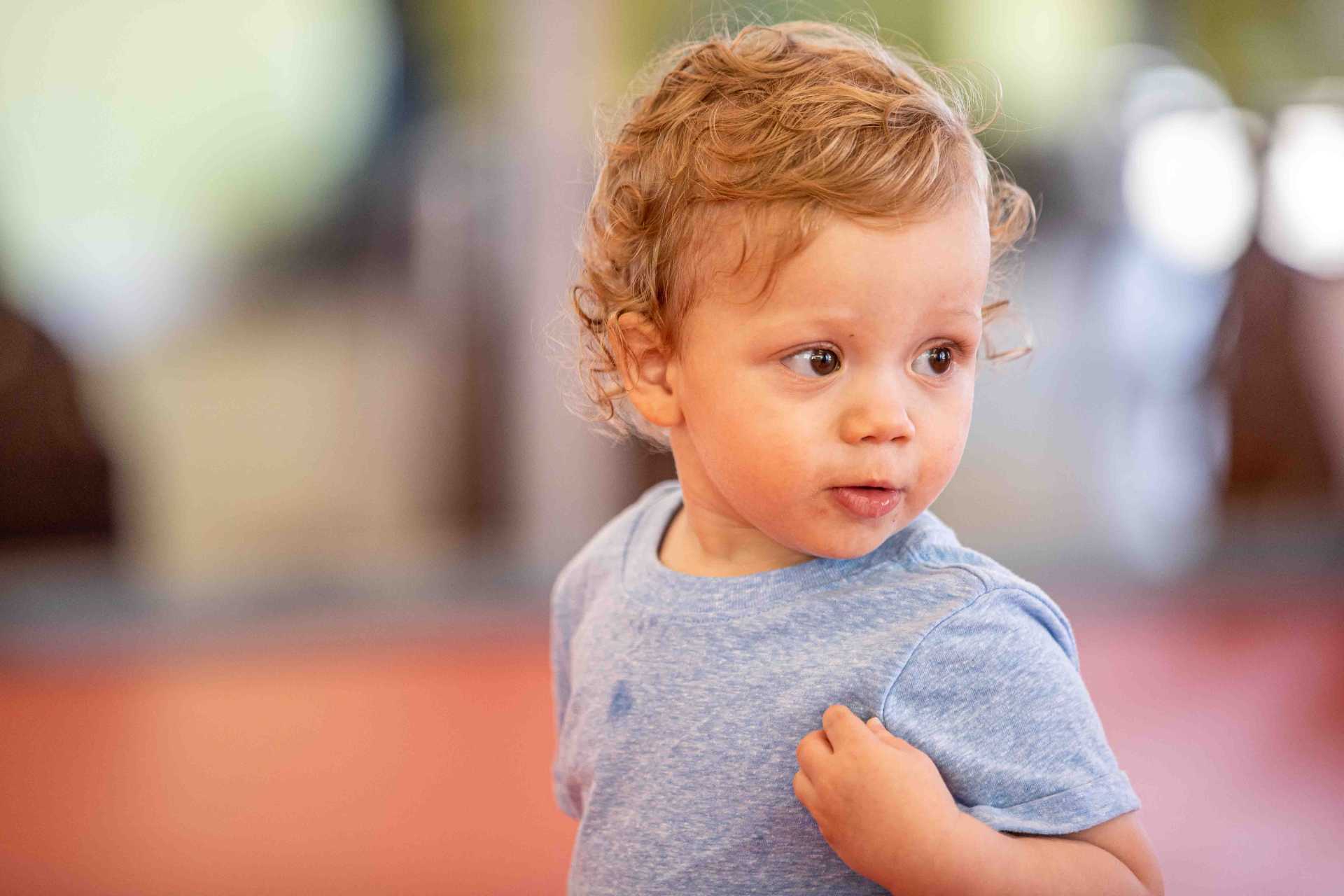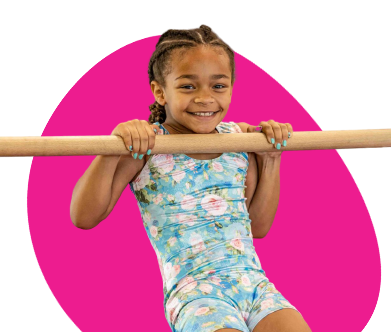As your little one grows and explores the world around them, learning to walk is a significant achievement that marks a new stage of independence and mobility.
Whether your baby is just beginning to pull themselves up to a standing position or is on the verge of taking those first wobbly steps, it’s an exciting adventure.
If you want to do more to help your baby walk as soon as possible, we have a few tips to share with you.
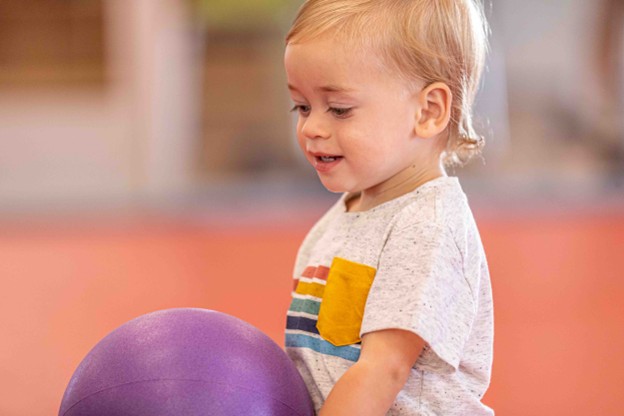
Ages Baby Starts Walking – What to Expect
On average, babies typically start walking independently between the ages of 9 and 15 months. However, it’s important to remember that every child develops at their own pace, and there is a wide range of what is considered normal in terms of when babies begin to walk.
Some babies may take their first steps as early as 9 months, while others may not start walking until closer to their first birthday or even later. Factors such as genetics, muscle strength, coordination, and individual temperament can all influence the timing of when a baby begins to walk.
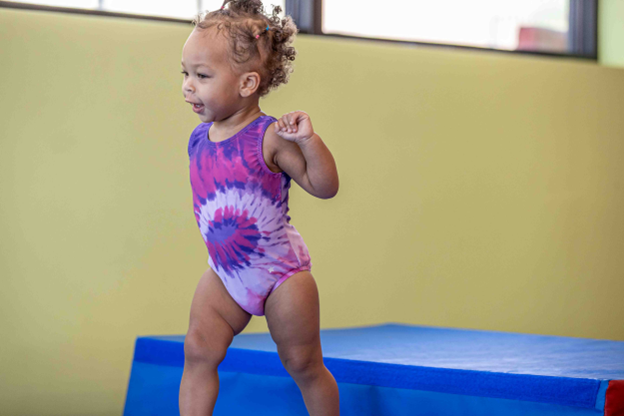
Before babies start walking, they often go through a series of developmental stages that prepare them for this milestone. These stages may include:
- Pulling Up: Babies typically start pulling themselves up to a standing position using furniture or other objects for support between 6 to 12 months of age.
- Cruising: Once babies can pull themselves up, they may begin toe walking and cruise along furniture while holding on for support. This usually occurs around 8 to 12 months of age.
- Standing Alone: Babies may start to experiment with standing independently for brief periods of time, usually between 9 to 12 months of age.
- Taking First Steps: Finally, babies will take their first independent steps, often with a wobbly and unsteady gait, typically between 9 to 15 months of age.
It’s important for parents to provide a safe and supportive environment for their baby to practice and explore walking skills. Encouraging opportunities for crawling, cruising, standing, and walking, as well as offering plenty of encouragement and praise, can help babies gain confidence and develop their leg muscles and walking abilities.
If you have concerns about your baby’s walking development or if they have not started walking by 18 months of age, it’s advisable to consult with your child’s doctor for further evaluation and guidance.
Tips to Help Baby Walk – Nurturing Your Child’s Development
Now that you have an idea of the stages your little one will go through as they learn to walk, let’s get into a few tips that you can use to help them along the way.
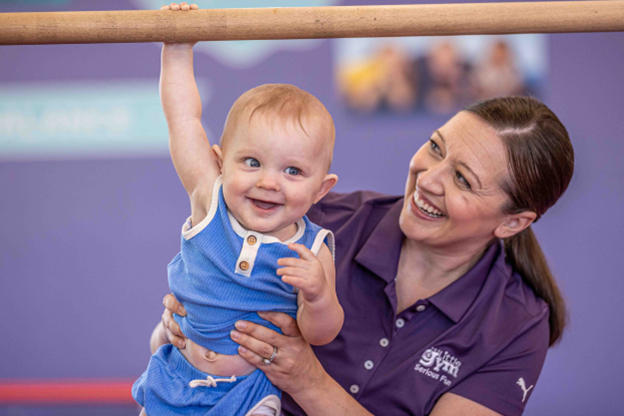
Encourage Floor Time
Allow your baby plenty of opportunities for floor time. Let your baby sit and practice rolling, crawling, and exploring their environment. This helps strengthen their muscles and develop coordination, which are important prerequisites for walking.
It also helps to practice activities that help your baby develop balance and stability, such as sitting on a stable surface or playing on a balance board. These activities help strengthen core muscles and improve balance, which are essential for walking.
Create a Safe Environment
Baby-proof your home to create a safe environment for your baby to explore and practice toe walking. Remove any hazards or obstacles that could cause trips or falls, and ensure that furniture is stable and secure.
It also helps to introduce them to toys and equipment that encourage standing and cruising, such as activity tables, push toys, and baby walkers. These can provide support and stability as your baby gains confidence in standing and taking steps. Birds classes at The Little Gym are a great way to give your baby a safe place to explore as they learn to walk.
Help Them Practice Standing with Support
Encourage your baby to practice standing by showing them how to hold onto furniture or other stable objects.
Support your baby by holding their hands or providing a gentle hand under their arms while they practice taking steps. This gives them confidence and stability as they learn to balance and coordinate their movements.
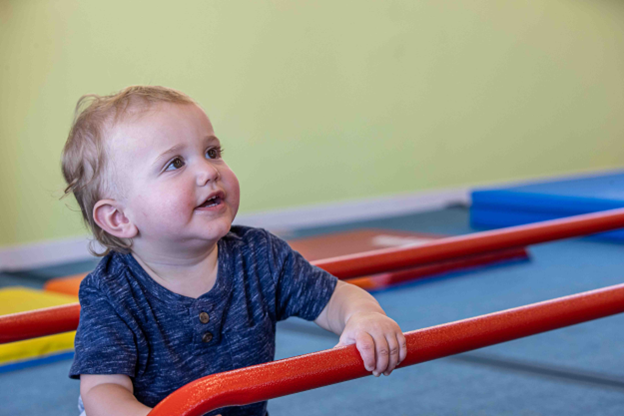
Give Them Some Motivation
Another way that you can help your baby learn to walk is to give them a little motivation.
Use toys, objects, or activities that motivate your baby to move and take steps. For example, you can place one of their favorite toys just out of reach to encourage them to take a few steps towards it, or play games such as “catch me if you can” to encourage chasing and movement.
You can also encourage your little one to cruise along furniture or other objects by placing toys or objects just out of reach. This helps strengthen their leg muscles and improve their balance and coordination.
Praise, Praise, and More Praise
Celebrate your baby’s efforts and milestones with plenty of praise, smiles, and encouragement. Positive reinforcement boosts their confidence and motivation to keep trying.
Remember that getting your baby to walk is a gradual process, and every baby progresses at their own pace. Be patient, supportive, and encouraging, and celebrate each step – both literal and figurative – along the way.
Do Baby Walkers Delay Progress?
You may have heard that baby walkers can slow down your baby’s walking progress. Unfortunately, this is true.
While baby walkers are a great way to keep your little one busy, they can slow down gross motor skills development and could even be a safety hazard.
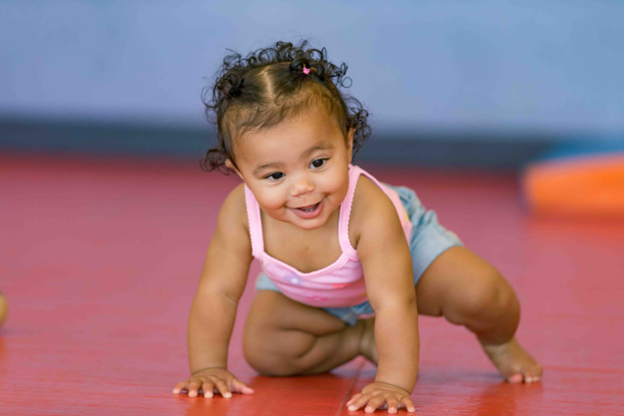
It’s only natural to think that these tools can help your little one practice walking, but, in reality, they could prevent all the muscles in their legs and core from developing as they should, leading to delays.
What’s more, these walkers can make your baby taller, making it easier for them to grab things off tables and other pieces of furniture, which can result in serious injury.
Push toys are a much better alternative as they provide your little one with essential support as they explore the world of walking independently.
Practicing Walking at The Little Gym
If you’re looking for some extra support as your little one transitions from sitting and crawling to walking, The Little Gym has a class for you.
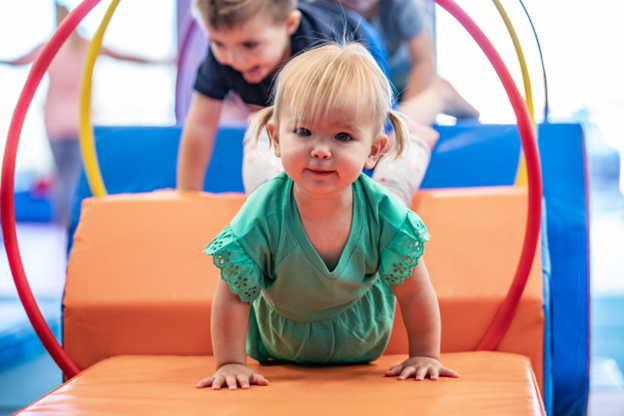
Our Bugs and Birds Parent-Child classes are ideal for babies aged 4 to 19 months and will help them focus on building strength and developing coordination in the company of other young explorers. With the guidance of qualified instructors, your little one will explore their abilities and get one step closer to putting one foot in front of the other.
Find out more about the classes near you here.

